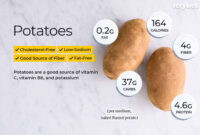Understanding the amount of nutrition your body needs is essential for maintaining good health and well-being. The right balance of nutrients provides the fuel for your body to function optimally and supports various bodily functions. In this article, we will explore the recommended daily intake of different nutrients and how you can ensure you meet your nutritional needs.
1. Macronutrients
Macronutrients are the nutrients that your body requires in large amounts. They include carbohydrates, proteins, and fats.
Carbohydrates: Carbohydrates are the main source of energy for your body. The recommended daily intake of carbohydrates varies depending on factors such as age, sex, and activity level. On average, adults should aim for around 45-65% of their daily calorie intake to come from carbohydrates.
Proteins: Proteins are crucial for building and repairing tissues, producing enzymes and hormones, and supporting the immune system. The recommended daily intake of protein for adults is around 0.8 grams per kilogram of body weight.

Fats: Healthy fats are essential for brain function, hormone production, and nutrient absorption. The recommended daily intake of fats is around 20-35% of your total daily calorie intake.
2. Micronutrients
Micronutrients are the nutrients that your body requires in smaller amounts. They include vitamins and minerals.
Vitamins: Vitamins are essential for various bodily functions, such as growth, immune function, and energy production. The recommended daily intake of vitamins varies depending on the specific vitamin and age group.
Minerals: Minerals are necessary for maintaining proper bodily functions, including bone health, fluid balance, and nerve function. The recommended daily intake of minerals also varies depending on the specific mineral and age group.
3. Water
Water is often overlooked but is essential for maintaining optimal health. It helps regulate body temperature, aids digestion, and carries nutrients and oxygen to cells. The recommended daily intake of water is around 8 cups (2 liters) for adults.
4. Factors Affecting Nutrition Needs
While the recommended daily intakes provide a general guideline, individual nutrition needs may vary based on factors such as age, sex, activity level, and underlying health conditions. Pregnant women, for example, require additional nutrients to support fetal development.
It is always a good idea to consult with a healthcare professional or registered dietitian to determine your specific nutrition needs and ensure you are meeting them adequately.
Conclusion
Understanding how much nutrition you need is crucial for maintaining good health. By following the recommended daily intakes of macronutrients, micronutrients, and water, you can ensure that your body has the necessary fuel and building blocks to function optimally. Remember, consulting with a healthcare professional can provide personalized guidance based on your specific needs.


